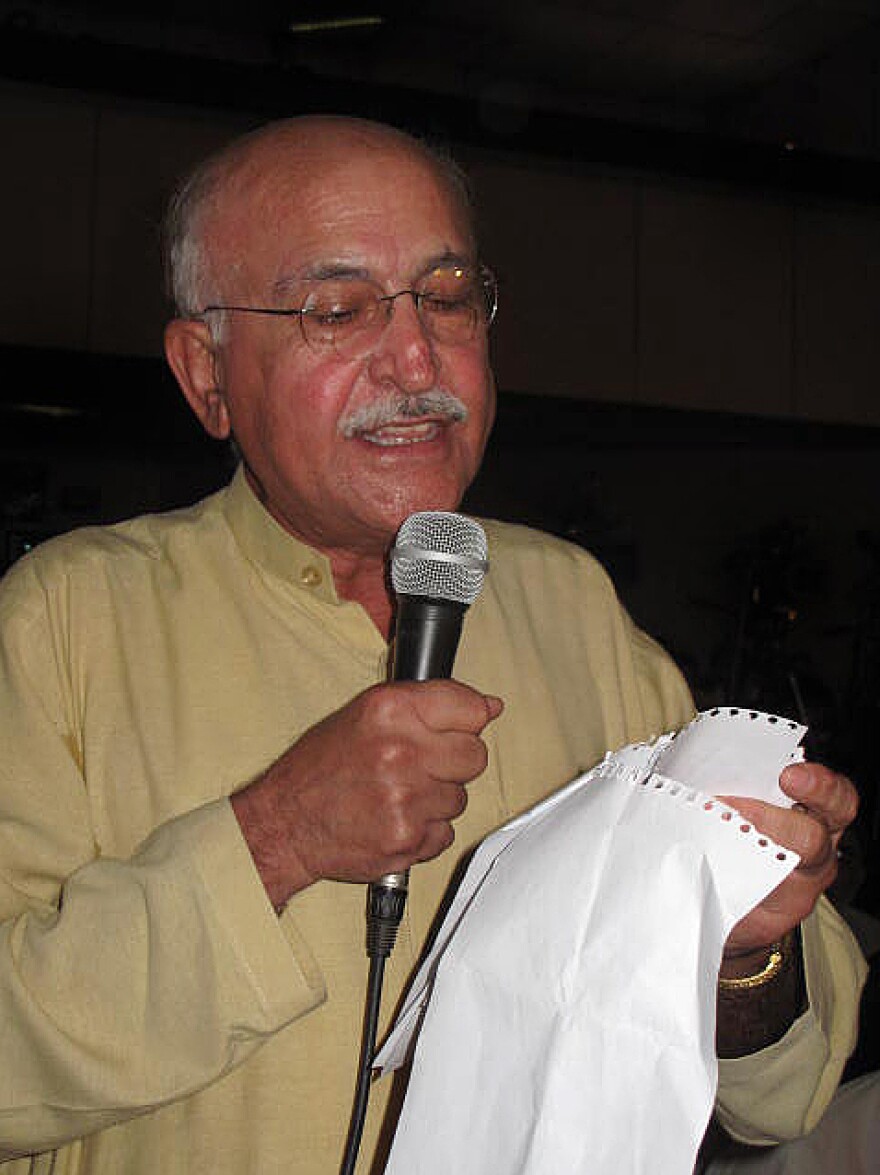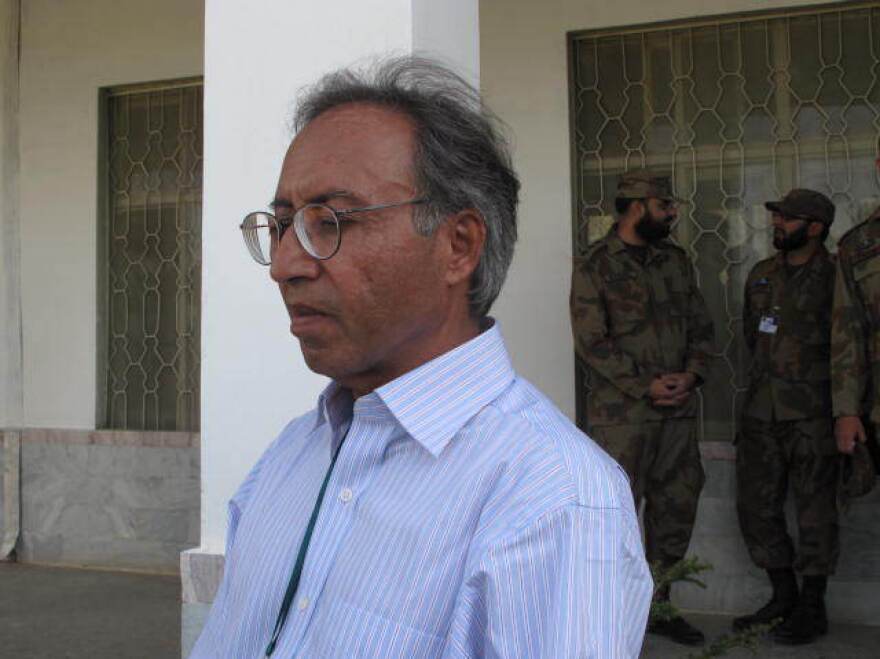Pakistan is deploying alternative methods to deal with the menace of militants.
In the scenic Swat Valley in the northwest of the country, the army crushed violent Islamist militants two years ago after they had seized the area. Now, doctors, teachers and psychologists are taking up the challenge of deradicalizing some 200 young men from that conflict.
UNICEF has financed the project with a grant to the Hum Pakistani Foundation. The Lahore-based group of more than 20 non-governmental organizations was formed to assist the 3.5 million Pakistanis who were displaced during the army offensive that expelled the Taliban from Swat and surrounding areas in 2009.
Speaking in Swat at a conference on de-radicalization, Army Chief Gen. Ashfaq Kayani said, "There is no military solution to terrorism."

Access to the young men is extremely limited.
"Many of the boys suffer from trauma," both physical and psychological, says leading clinical neuropsychologist Feriha Peracha. "It takes them a long while to get over that anxiety."
In one videotaped session recorded by the army, which provides security to the program, Peracha is the gentle inquisitor, questioning the boys about how they were pulled into the Taliban's orbit. None of her young charges can be named for their own safety.
One young man says the Taliban "had their own weapons at the mosque."
"What were all these weapons doing in a mosque? Something to think about, isn't it," Peracha notes, firmly. "Yes," comes the reply.
A clinical neuropsychologist, Peracha opens her sessions assuring the young men they will not be punished for past transgressions. They had informed on the local population for the Taliban, extorted money from shop owners and performed all manner of menial tasks at the Taliban's orders.
In another session, she takes one of the boys to task for joining in the whipping of a young girl by a group of militants. He tells her he would have been "killed" had he not participated in the beating. But Peracha presses him: "Did you see any other member of the crowd beating her?"
"No, I didn't," is the answer.
"But you hit her 20 to 30 times. Did the poor girl die?"
"No, ma'am. I was hitting her gently, but he told me off and wanted me to use more force."
It is a painstaking process before the young men reveal the full extent of their involvement and indoctrination.
An adolescent, libido high, and you tell him, 'Look, to kill a Pakistan army guy, you are going to get 70 beautiful women immediately.' ... Why should he not do that?
Paracha and a team of medical experts and educators help them through it at a deradicalization center known as Sabaoon, or "New Dawn," an isolated retreat in the Swat Valley. Peracha, who runs the center, says it has treated more than 180 young men since opening in 2009.
"Some are trembling when they come here," Peracha says, "because they were involved in acts that were very serious."
That includes training as suicide bombers. Few admit to doing anything wrong.
But standing in a classroom of his peers, one 16-year-old candidly recalls how he got involved with the extremists. He had abused alcohol so badly that, in desperation, his mother turned to the Taliban.
"I was beating my mother and my brother. My mother told the terrorists: 'Show him a good way. And help him [get over his drinking].'" But they didn't help; instead, says the teen, who was 13 at the time, "they kidnapped me and beat me very badly. ... They showed me the way of ... suicide [bombing]."
Susceptible Adolescents
The Taliban could exploit these young men because they were poor, illiterate and in many cases without a father. Medical specialists say these underprivileged and underachieving teenagers are especially vulnerable to the militants and are all too susceptible to becoming suicide bombers.
"An adolescent, libido high, and you tell him, 'Look, to kill a Pakistan army guy, you are going to get 70 beautiful women immediately. Immediately, you do it and there they are, waiting for you. And there is milk and honey.' ... So why should he not do that?" Peracha asks.

Treatment is individually tailored to the needs of each young man. The approach includes mainstream academics with the aim of a high-school degree. Boys who never attended school before get vocational training to become electricians or repairmen. When they complete the deradicalization program, the young men are placed in jobs or in local schools where they continue to be closely monitored.
While residents at the center, they also receive religious instruction with a focus on correcting conflicting notions about Islam: from misconceptions that the Quran condemns anyone who is not a Muslim to more mundane matters like Western clothing for men.
"Would you believe it?" says Peracha. "They thought that anybody who wears trousers is a sinner, a [nonbeliever]. You will see they're all wearing trousers. They will not take the trousers off, now. So symbolically that is one kind of intervention," she laughs.
Searching For A Cause
What makes a militant?
It's a question that resonates throughout Pakistan as the country grapples with growing fundamentalism.
Notables from Pakistan and abroad took up the issue at a recent army-sponsored international forum in Mingora, Swat's main city, about an hour's drive from Peracha's center for young former militants.
Members of the audience called for closing any mosque or madrassa that encourages fundamentalism of the kind the Taliban espouses when it recruits impressionable boys and young men. Others blamed the chasm between Pakistan's haves and have-nots for the lack of opportunity that militants use to cultivate followers.
Swat Valley resident Ehsanullah Khan, hands nervously trembling, read his statement to the chairman of the forum aloud, blaming a judicial system that defies speedy justice for seeding the germs of radicalism.
"Get rid of this corrupt system! When that doesn't happen in over 60 years, what do I think and dream: radical thoughts, sir, radical thoughts!"
Prime Minister Yousuf Raza Gilani made an appearance and said that the United States needs to give Pakistan room to maneuver in its battle with extremists. He said the wars waged by the West in Afghanistan had spawned a militant culture that has spilled over into Pakistan.

But under a white tent outside the meeting hall, political analyst Rasul Bakhsh Rais said Pakistan's own leadership is responsible for the country's tangled web of extremists. He said after all this time Pakistan's political class hasn't even developed a counternarrative to the militants' anti-Western, pro-jihad message.
"My view [of] the ruling groups is very simple: They don't belong to the people. They don't belong to this country," he said. "They're here to plunder the resources of this country. And they have created this mess in which Pakistan is going through."
Back To Normal?
In Swat Valley, where men in black turbans once lured young recruits, boys are back at the soccer fields and life again seems normal. But Swat resident and educator Ziauddin Yousafzai said despite the large army presence, peace is fragile and people are scared. One of the elders of the area who had been on the militants' hit list was recently murdered.
"Muzaffar Ali Khan, he was martyred just a month ago at his home at midnight ... The ideology of militancy, the ideology of terrorism, it is still there!" he said.
In recent weeks, hundreds of militants have staged cross-border raids from Afghanistan into neighboring districts of Swat — sequential attacks that demonstrate the huge challenge Pakistan faces in changing militants' thinking.
Army spokesman Gen. Athar Abbas says the same Pakistani militants who were flushed over the border are roaring back. "Many of [the militants] have been killed, many have been apprehended, and many of them have crossed over to the other side [of the border]."
Pakistan's army has been accused of extrajudicial killings of suspected militants in Swat. Osama bin Laden's ability to hide in Pakistan has raised disturbing questions about the country's capacity to confront extremism. And not long ago, Pakistani intelligence trained militants to fight in Kashmir, a disputed area between India and Pakistan, in a bid to "bleed" its archrival India.
Yousafzai, however, says the army deserves credit for its efforts to help reverse extremists' thinking today.
"We created serpents. ... And we thought that this snake will bite my neighbor, and it will not bite me," Yousafzai says. "Now [the military has] come to their senses. So, it's good. We support it."
Peracha, meanwhile, quietly continues her effort to educate young men in Swat Valley. She says the best way to undo their Taliban indoctrination is "to give them back their childhood."
"They're teenagers, for heaven's sake. ... They're children in the end."
Since her Sabaoon center opened nearly two years ago, just 32 men have been fully integrated into Swat society. Organizers say the process is slow and arduous, but are hopeful that with their exhaustive treatment program, some 40 more graduates will move on to local schools and colleges by the end of the year.
Copyright 2020 NPR. To see more, visit https://www.npr.org. 9(MDAxNDQ2NDAxMDEyNzU2NzM2ODA3ZGI1ZA001))




